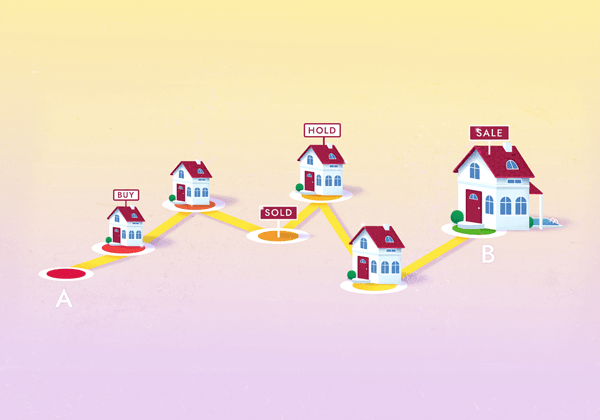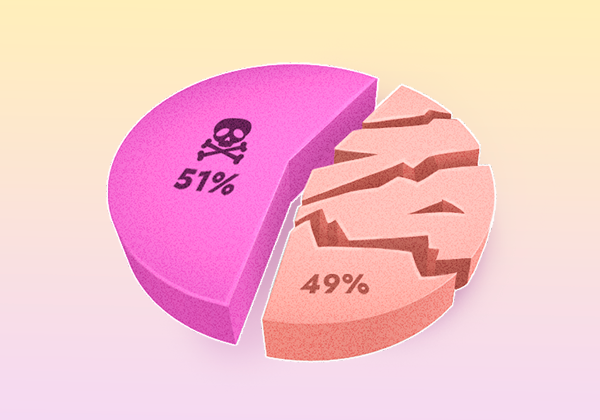
Blockchain Technology Scopes of Use
In recent years, blockchain technology has emerged as a revolutionary force with the potential to transform a wide array of industries. Often associated with cryptocurrencies, this innovative technology offers far more than just a secure means of digital transactions. As we delve into the vast applications of blockchain, we will explore its impact on art, video games, security, insurance, logistics, combating counterfeiting, and real estate.
Join us as we unravel the diverse scopes of use for blockchain technology, revealing how it can revolutionize our world and reshape the future.
Art
As we delve into the various scopes of use for blockchain technology, one of the most prominent applications can be found in the art world, where non-fungible tokens (NFTs) have made a significant impact. These unique digital tokens have transformed the landscape of creative industries, allowing artists, musicians, and influencers to monetize their assets. NFTs not only serve as a means to authenticate digital art and music but can also extend their value to tangible assets like physical paintings and jewelry. By leveraging the power of blockchain, NFTs are revolutionizing the concept of ownership and value in the art world and beyond.
Video Games
Soon after cryptocurrencies found their footing in finance and payments, developers started exploring the potential of blockchain technology in the gaming industry. They aimed to address a range of issues, such as economic manipulation by gaming companies, payment challenges, risks of disconnection, and gameplay imbalances. Blockchain offers a decentralized and transparent open-source network for players, introducing groundbreaking features such as genuine asset ownership, consensus-driven updates, decentralized marketplaces, and optimized tokens.
An early example of blockchain integration in gaming is CryptoKitties, a game that enables users to collect and breed digital cats, with transactions occurring on the Ethereum blockchain. At its peak, CryptoKitties generated so much interest that it dominated the majority of Ethereum network traffic. Though the CryptoKitties craze subsided, other developers have since launched more sophisticated blockchain-based games, including Alien Worlds, Axie Infinity, Cartesi, The Sandbox, and others, showcasing the potential of blockchain technology in revolutionizing the gaming industry.
Security
Security is a multifaceted subject that impacts individuals and nations alike, and blockchain technology presents solutions for various aspects of this critical issue. For individuals, blockchain-based security measures encompass sovereign identity for full control over personal data, protection of data transmission and personal communications, as well as security enhancements for Internet of Things (IoT) devices.
At an organizational level, blockchain enables companies to establish a distributed workflow, mitigating the risk of DoS attacks targeting vulnerable nodes, such as websites. Furthermore, governments from countries like Australia, Malta, and China have recognized the potential of blockchain technology for enhancing security, integrating it into various aspects of their operations.
Insurance
The insurance sector is highly susceptible to fraudulent activities, and the extensive paperwork involved makes it a prime candidate for blockchain integration. Blockchain technology has introduced numerous advantages to the industry, such as bolstering anti-fraud measures, streamlining paperwork, and facilitating reinsurance processes. Additionally, blockchain has spurred innovation in insurance business models, empowering companies to provide more refined insurance products and on-demand microinsurance options.
The potential for blockchain to address the challenges faced by the insurance industry is so significant that nearly 80% of insurance executives have either already adopted the technology or are considering its implementation within their organizations.
Logistics
Blockchain can be used as an electronic waybill, enabling the tracking of goods delivery from supplier to buyer. This solution has the potential to replace the traditional CRM system. Moreover, the new technology has an advantage over the old one, as the CRM system is susceptible to hacking, data alteration, or deletion. Once information is placed in an open blockchain, it remains there and cannot be deleted.
An example of an organization using blockchain as a bill of lading is the shipping company Alibaba, associated with the famous Chinese sales service AliExpress. With this solution, Alibaba, its employees, and subcontractors can track the flow of transported products and their quantities in circulation online, but they cannot make changes to a specific registry. On the same principle, blockchain is used by large apparel brands, allowing them to control the entire product delivery process.
Fighting Counterfeiting
Blockchain technology effectively combats counterfeiting, a prevalent issue in the luxury goods industry. By providing blockchain-based product authentication, brands protect their products and consumers from counterfeit items. LVMH, Microsoft, and Consensys have collaborated to create the Aurora platform, which monitors and tracks luxury goods. Many luxury brands now offer products with proof of authenticity, promoting ethical production and sustainability. Additionally, the gemstone industry, particularly diamonds, uses blockchain authentication through platforms like Tracr, ensuring the verification of provenance and related transactions for natural diamonds.
Real Estate
Blockchain technology has the potential to enhance service quality in the real estate sector, which is plagued by issues such as sluggish transactions, administrative disputes, and distrust among buyers, sellers, and intermediaries. The integration of blockchain systems in real estate allows for automation of routine tasks and agreements, increased transparency in listing and tracking data, and cost reduction.
Besides improving service quality, blockchain also introduces innovative business models to the real estate market. Examples include fractional ownership of otherwise indivisible assets, digital contracts to expedite transactions, and real estate crowdfunding through tokenization, among others. By addressing the industry's challenges, blockchain technology is poised to transform the landscape of real estate transactions and management.
Conclusion
Blockchain technology has far-reaching applications beyond cryptocurrencies, impacting industries such as art, gaming, security, insurance, logistics, anti-counterfeiting, real estate, etc. As these sectors embrace blockchain, they unlock new levels of efficiency, transparency, and innovation, paving the way for a more interconnected and secure future.
► Sabai Academy — a place where studying blockchain, crypto, fractional ownership, and real estate investments becomes a catalyst for capital growth!
Sabai Academy
Smart Reward System exclusive for academy participants!
Related Articles

Real Estate Investment Strategies

How to Swap $SABAI Tokens from Ethereum to Polygon?

